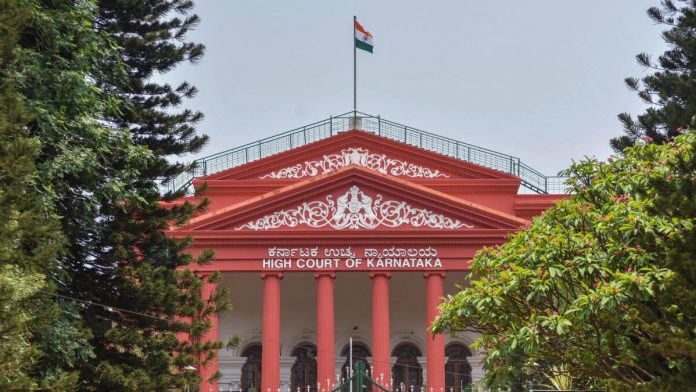This article is written by Nishka Kamath, a student at Nalanda Law College, University of Mumbai. This article discusses the difference between the courts and expert bodies in relation to Bangalore Water Supply and Sewerage Board v. Ambarish Kumar S.
Table of Contents
Introduction
Recently, the High Court of Karnataka deduced that the Courts are not the expert bodies to decide whether the degree of Bachelor in Engineering (BE) is equal to a degree in science or not. This Board, comprising of a Division Bench of Justice Satish Chandra Sharma and Justice Vishwajith Shetty, set aside an order passed on September 3, 2020, by a single bench judge who directed the Bangalore Water Supply and Sewerage Board (BWSSB) to consider treating a BE degree as a Bachelor’s degree in Science, and thus, to consider the candidature of seven candidates who were all BE degree holders, for the position of assistant/clerk.
The Bench further stated that such responsibilities should be left to the expert bodies like the University Grant Commission (UGC) as they are not the expert bodies to decide on matters of such interests. This observation was made by the Court when it allowed a writ petition filed by Bangalore Water Supply and Sewerage Board (BWSSB). The case is discussed in depth further.
The difference between courts and expert bodies
The dictionary meaning of the word “court” means a place where trials and all the legal cases take place, or where the individuals, especially the officials decide if someone is guilty of an offence committed or not. Whereas, the dictionary meaning of the word “expert” is an individual who has a high level of knowledge or skill associated with a particular subject or activity. Thus, we can refer to an expert body as an amalgamation of individual/s having expertise in a particular field. The courts have time and again stated that they are not an expert body to decide on matters which require an expert body’s intervention like in the cases mentioned below.
- The Hon’ble Supreme Court in the case of B.C.Mylarappa @ Dr. Chikkamylarappa vs R.Venkatasubbaiah & Ors (2008) held that the Court including the division bench and a single judge ought not to exercise any writ jurisdiction and meddle into the choice of the expert committee of the University in context to the post of Professor in the Sociology Department of the University, especially when there are no mala-fide intentions. Thus, the Court rejected the writ petition filed by the respondents and set aside the orders of the High Court, and allowed the appeal.
- In the case of Balwant Singh Parihar And Anr. vs Union Of India (UOI) And Ors. (2006), the Rajasthan High Court observed that the Supreme Court has time and again held that it is not for the court to make any decisions in the matter of equation of post as well as equal pay scale and that, it is for the expert bodies, the Pay Commission and the governing bodies to consider such matters and infer upon them.
- The Karnataka High Court in the case of Bangalore Water Supply and Sewerage Board v. Ambarish Kumar S. (2020) held that the Court is not an expert body to decide whether or not a BE degree is equal to a degree in science or not. This case has been discussed in depth below.
Bangalore Water Supply and Sewerage Board v. Ambarish Kumar S.
Facts of the case
- A writ petition was first filed pleading that the seven individuals (respondents, in this case; petitioners/appellants in the previous order), one of them being Ambarish Kumar S., holding a degree in Bachelor of Engineering be considered as equals to the holders of any degree be it commerce, science, arts or any other graduate degree and that, these individuals were qualified to be appointed for the post of ‘Assistant’, notification of which was issued on 24-08-2018 for non- Hyderabad- Karnataka area, as well as that of Hyderabad-Karnataka area.
- According to the notification, the Bangalore Water Supply Sewerage Board (BWSSB), who is the present appellant, in this case, called for applications inviting candidates for various posts, one of them being that of Assistant. The qualifications one needs to possess is that of a degree in Arts/Commerce/Science from a recognised University and a one-year duration course in computer basics. Since this notification does not differentiate between a technical and a non-technical course, it is believed that any candidate with a science degree, regardless of whether they are technical or non-technical, has the right to apply for the position of Assistant.
- The individuals prayed that being engineering graduates they should also be treated as graduates in the subject of science and requested the BWSSB to consider the same, but the Board did not consider this request, stating that they hold a graduation degree in engineering which is technically qualified and that, the qualification prescribed for the post of Assistant is for candidates holding a degree in science i.e. B.S.C or some degree equivalent to it. Also, they further stated that the degree should not be technical in nature. Thus, the seven individuals aggrieved by this moved to the High Court of Karnataka.
- The single-judge held that the term ‘science’ had no definition anywhere and cannot be limited to include only a Bachelor’s degree in pure science. Therefore, the BWSSB challenged this order made on 3.09.2020 by the single-judge before the Division Bench.
The main issue of the case
Whether the courts are expert bodies to decide if a Bachelor’s degree in Engineering is equivalent to a degree in science or not?
Relevant legal provisions
This writ appeal was filed under Section 4 of the Karnataka High Court Act, 1961 pleading that the order which was passed by the learned single judge on 03-09-2020 be set aside and the appeal be considered.
The contention of the parties in the case
Arguments by the appellant (BWSSB)
The learned counsel appearing on behalf of the appellant submitted that there is no chance that a degree in engineering be treated as a graduate degree in science as they are two different disciples. The learned counsel further asserted that the single-judge in the case of Zahoor Ahmed Rather and ors. vs Sheikh Imtiyaz Ahmad and ors. (2018) did not accurately interpret the judgement.
Arguments by the respondents
In response to the arguments of the learned counsel of the appellant, the counsel appearing for the respondents asserted that an engineering degree is, of course, a science degree because the former is a part of science. Hence, it was reasonable for the single-judge to believe that the respondents have the right to participate in the selection process.
Findings of the court
After going through the arguments from the counsels, the Division Bench cited the decision of the Supreme Court in the Zahoor Ahmed case (stated above), according to which, as the respondents do not hold the qualification i.e. Bachelor degree in Science, even though they have a Bachelor degree in Engineering, the qualification that was prescribed for the post of ‘Assistant (Clerk)’ is only graduation and thus, the learned single judge has made a mistake in law and facts by allowing the writ petition.
Furthermore, the state as a public employer must take into account the social perspectives that require the creation of employment opportunities across the societal structure. Additionally, the division bench stated that the employer has the right to prescribe qualifications as a condition for eligibility and the role of judicial review is not to widen the scope of such stipulated qualifications.
Thus, the Court decided that the judgment delivered in the case of Zahoor Ahmed makes it crystal clear that the employer has the right to mention the qualifications as a requisite for being eligible for the post and the role or function of judicial review does not have the authority or capacities that partially broadens the scope. It was further concluded that equivalency of qualifications is not an issue that can be determined by exercising the power of judicial review.
Moreover, it was found that whether specific qualifications should be considered equivalent qualifications or not is a matter of the State to decide upon, as the State is the recruiting authority. Also, the Court further said that the expert bodies like the University Grant Commission (UGC) are entitled to conclude on such matters.
Considering all the above contentions and facts, the Court came to a decision that the appeal preferred by the employer is reasonable enough to be allowed, and thus, the appeal was allowed. In addition to this, the order of the single-judge was set aside.

Viewing the judgment as a good precedent
The division bench of the Karnataka High Court by setting aside the order of the single- judge has indeed, set a criterion for the upcoming cases with issues similar to that of this case. The decision of the Hon’ble Court proves that the concept of ultra vires still prevails and that, no one shall act beyond the powers.
If the division bench had not overruled this order, a lot of upcoming cases having the same or similar facts, like this case, might have faced the same ordeal as that of the seven candidates mentioned above.
Further, the Court by stating that an expert body is entitled to occur to a decision in matters of recruitment, and the State as an authority who is recruiting or the employer has the right to prescribe specific qualifications as a prerequisite for being eligible for the post and that, the judicial review does not have the authority or capacities that partially broadens the scope has set a good example.
Also, the Court by stating that they (the courts) are not an expert body to decide whether the degree in Bachelor of Engineering is equal to a Bachelor’s degree in Science or not and it is for the expert body like the University Grants Commission (UGC) to decide on matters of such interest, has certainly set a good precedent.
Conclusion
Time and again, the Courts have opined that they are not expert bodies to meddle in the choices of the specialist committees or they do not have the jurisdiction to decide on any matters where a piece of advice or guidance of the expert body needs to be exercised.
Similarly, the Karnataka High Court in the case of Bangalore Water Supply and Sewerage Board v. Ambarish Kumar S. has stated that the court is not an expert body to decide whether or not a Bachelor of Engineering degree is equivalent to a Bachelor’s degree in Science and it is for an expert body like University Grants Commission (UGC) to decide upon such matters.
Such instances set a good paradigm for the upcoming matters and prevent abuse or misuse of power, thus averting a court from acting ultra vires i.e. beyond the powers.
References
- Courts not expert bodies to decide whether Bachelors Degree in Engineering is equivalent to Degree in Science: Karnataka High Court – Bar and Bench | DailyHunt
- https://lawbeat.in/news-updates/whether-bachelors-degree-engineering-equivalent-degree-science-cannot-be-decided-court
LawSikho has created a telegram group for exchanging legal knowledge, referrals and various opportunities. You can click on this link and join:
https://t.me/joinchat/J_0YrBa4IBSHdpuTfQO_sA
Follow us on Instagram and subscribe to our YouTube channel for more amazing legal content.
 Serato DJ Crack 2025Serato DJ PRO Crack
Serato DJ Crack 2025Serato DJ PRO Crack










 Allow notifications
Allow notifications


